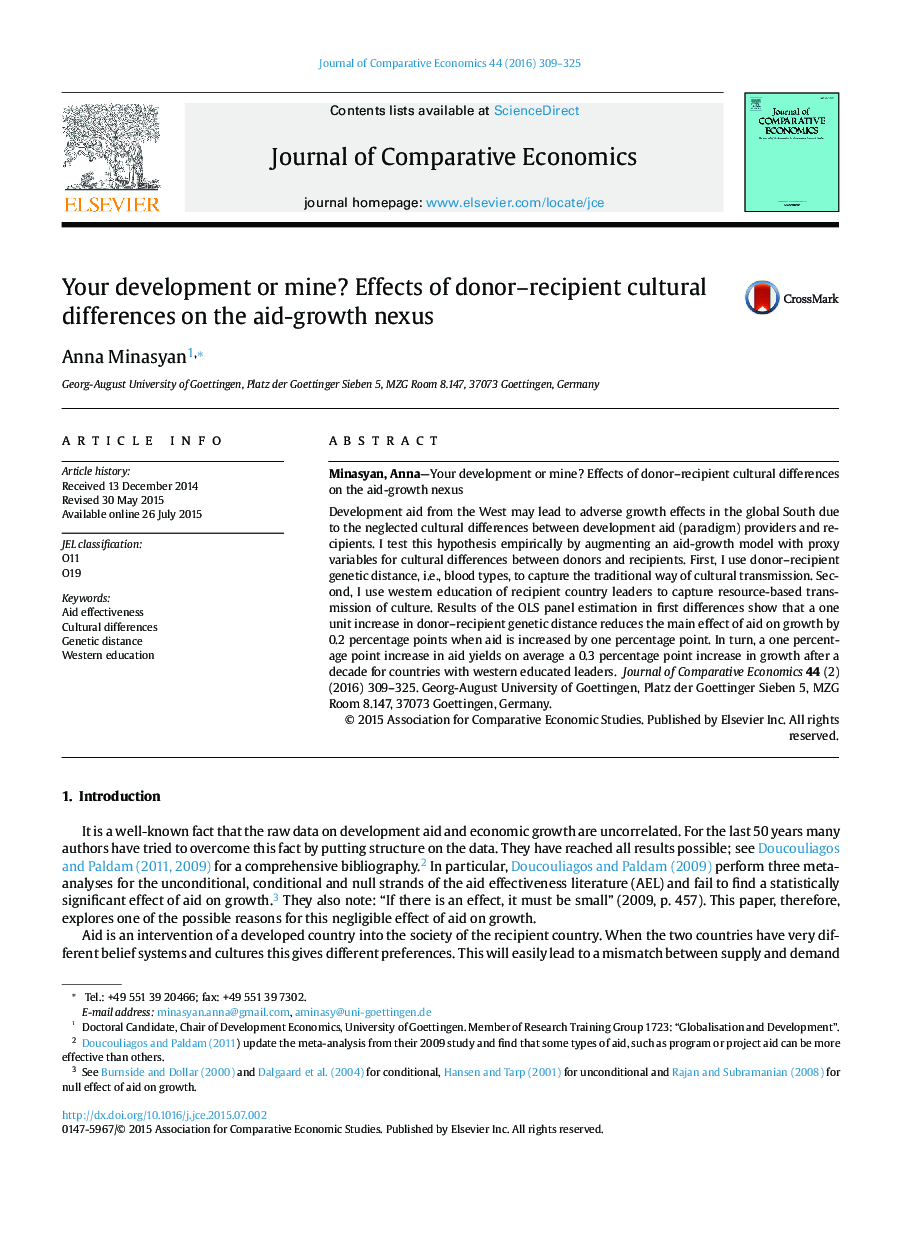| Article ID | Journal | Published Year | Pages | File Type |
|---|---|---|---|---|
| 5092286 | Journal of Comparative Economics | 2016 | 17 Pages |
â¢Most development paradigms are not adjusted for local cultures.â¢Aid to culturally distant countries can result in forgone growth effects.â¢The estimated loss due to cultural distance is 0.2 percentage point, on average.â¢Leaders' western education can benefit the effectiveness of aid in a long run.â¢The estimated gain from leaders' western education is 0.3 percentage point.
Development aid from the West may lead to adverse growth effects in the global South due to the neglected cultural differences between development aid (paradigm) providers and recipients. I test this hypothesis empirically by augmenting an aid-growth model with proxy variables for cultural differences between donors and recipients. First, I use donor-recipient genetic distance, i.e., blood types, to capture the traditional way of cultural transmission. Second, I use western education of recipient country leaders to capture resource-based transmission of culture. Results of the OLS panel estimation in first differences show that a one unit increase in donor-recipient genetic distance reduces the main effect of aid on growth by 0.2 percentage points when aid is increased by one percentage point. In turn, a one percentage point increase in aid yields on average a 0.3 percentage point increase in growth after a decade for countries with western educated leaders.
